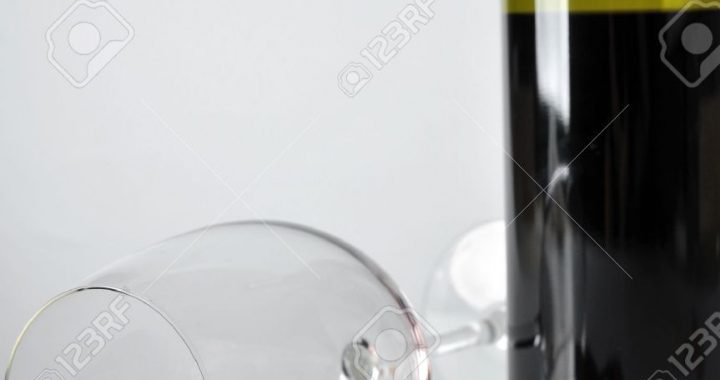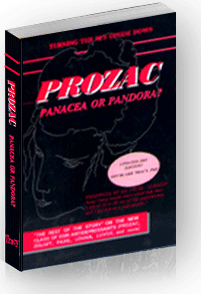Alcohol Cravings Induced via Increased Serotonin
by Ann Blake Tracy, Director, ICFDA
There is an alarming connection between alcoholism and the various prescription drugs that increase serotonin. The most popular of those drugs are: PROZAC, ZOLOFT, PAXIL, LUVOX, CELEXA, LEXAPRO, EFFEXOR, CYMBALTA, REMERON, PRISTIQ, TRAZADONE, TRAMADOL, ANAFRANIL, BRISDELLE, ETC. For many years numerous reports have been made by reformed alcoholics (some for 15 years and longer) who are being “driven” to alcohol again after being prescribed one of these drugs. And many other patients who had no previous history of alcoholism have continued to report an “overwhelming compulsion” to drink while using these drugs. This was the first antidepressant reaction I noticed with the first SSRI antidepressant Prozac because it stood out like a sore thumb in the area in which I lived, Salt Lake City, Utah, headquarters for the Church of Jesus Christ of Latter-Day Saints also called Mormons. Mormons do not drink alcohol, but when so many began doing so after starting on one of these drugs it became very obvious that there was a connection. Many stated they had no idea how they knew alcohol was what they were craving since they had never in their life even tasted alcohol before.
Of course the first group I contacted mistakenly thinking there would be grave concern on their part was Alcoholics Anonymous. Much to my surprise they had no interest whatsoever. So I worked to get the warning straight to the patients themselves.
For some time we did not have specific medical documentation to help us understand why this was happening. Could it be that Prozac, Zoloft, Paxil, etc., being mood altering substances, were removing the inhibitions that individuals had placed upon themselves to stop their additions?
But beyond this mood altering effect of Prozac, etc., there seemed to be a physiological cause for this alcoholic obsession as well. There were reports of people who rarely drank before Prozac, etc., consuming excessive amounts of alcohol after starting usage of these various drugs. For example we have the case of a young newly wed in Southern Utah who was given Prozac for a hormonal imbalance. Before that time she would have two or three social drinks a year, yet soon after being prescribed Prozac she began bringing alcohol home by the case. Many similar reports followed.
A few patient reports:
#1 A young woman, a recovering alcoholic, reported that during the eight month period she had been using Prozac she found it necessary to attend AA meetings every day in order to fight off the strong compulsions to begin drinking again.
#2 In the Southeastern United States a middle aged psychologist, also a recovering alcoholic, after being prescribed Prozac, found herself needing to attend AA meetings morning, noon, and night to keep from destroying the sobriety she had achieved.
#3 A young father, who was Mormon and had never before in his life used alcohol, found himself drinking Ever Clear and exhibiting bizarre as well as violent behavior, after being prescribed Prozac and Ritalin.
#4 A young mother who had never used alcohol before began drinking large amounts within weeks of being prescribed Prozac and quickly found herself committed to a mental institution due to the psychotic behavior that resulted. Added to her Prozac prescription were anti-psychotic meds and electric shock treatments. She then began to experience seizures and was started on anti-seizure meds.
#5 A concerned neighbor reported her friend was drinking straight Vodka on a regular basis after being prescribed Zoloft.
#6 A daughter reported her father, sober for 15 years, began drinking again on Prozac. The consistent report from these patients has been an “overwhelming craving or compulsion” for alcohol.
#7 One woman who brought her young niece with her to the FDA hearing when Prozac was still the only SSRI antidepressant on the market in 1991 testified of her family’s double tragedy. Her sister, with an alcohol problem, was given Prozac and shot herself in front of her young daughter who had come with her aunt. Then the father was given Prozac, who also had an alcohol problem, and he too committed suicide on the drugs leaving their daughter as an orphan that the aunt was now raising as her own child. Had this warning been given that little girl should have had to endure such suffering and her parents should still be with her.
The Blood Sugar Connection
Could it be that because these drugs have such a strong adverse effect upon the pancreas [Manufacturer’s warnings include such side effects as hypoglycemia, diabetes and pancreatitis.] they are producing a potent disruption in the body’s blood sugar balance? This would in turn cause a “craving” for alcohol as the body reaches out for a “quick fix” to raise the blood sugar level thus triggering a vicious self-perpetuating cycle as the alcohol pushes the blood sugar level even lower after the brief high it produces. This means that those suffering a tendency toward alcoholism or any other blood sugar disorder would suffer the most disastrous repercussions of Prozac, etc., (including psychosis, suicidal ideation and violence) much faster than most. Patient reports support this conclusion.
In November of 1994 Yale published a study that gave us one answer to the alcohol cravings associated with these drugs. The study demonstrated that an increase in brain levels of either of two neurotransmitters (brain hormones), serotonin or noradrenalin, produces: #1 a craving for alcohol, #2 anger, #3 anxiety. They found this to be especially true for those who have a history of alcoholism. All of the drugs listed above are designed in one way or another to increase serotonin which in turn also increases noradrenalin.
The Bipolar Connection
In the early days of the SSRIs being introduced to the market many psychiatrists refused to prescribe Prozac, etc. due to their high potential to produce mania/Bipolar as a result. To learn this now after many years of the skyrocketing use of these drugs and every third person you meet being diagnosed Bipolar now, you might find it hard to believe that the connection seems to be made so rarely. There are many forms of mania which bring a diagnosis of Bipolar. One of the many forms is called Dipsomania. The description of dipsomania is an “overwhelming craving for alcohol” …. so this has long been known to be a form of mania which SSRIs are notorious for producing! You can watch me explain all of that here to the FDA clear back in the December 2006 hearings and yet a decade later there are still no warnings: https://www.drugawareness.org/fda-testimony/dr-ann-blake-tracys-december-13-2006-to-the-fda
Where Were The Warnings? Where Are The Warnings?
Anyone who has a history of alcoholism should heed the warning contained in these reports especially since so many alcohol rehab facilities regularly put patients coming in for alcohol rehabilitation on these drugs that produce cravings for alcohol thus defeating their whole purpose of being there. One high profile example of that is Lindsay Lohan who develop alcohol cravings from the use of Zoloft. The courts would order her into rehab who would keep her on the antidepressant and yet try to take her off alcohol. It is abuse in the worst form at the hands of the court system.
Anyone who has developed a problem with alcoholism while using these drugs deserves answers as to why they have experienced such an overwhelming compulsion to drink. America already has millions of alcoholics. To increase that number via a reaction from prescription drugs which causes a compulsion to drink is a tragedy! What a sad state of affairs that drugs which are actually being promoted as a treatment for alcoholism have the potential to create alcohol craving behavior. This is not only frightening, but absurd.
It is heart-rending to listen to those who have had years of sobriety destroyed almost overnight or those who have never touched alcohol before Prozac, yet began drinking compulsively due to a medication prescribed by doctors unfamiliar with this connection. By chemically inducing an overwhelming urge to drink this effect also causes patients to mix alcohol in combination with these powerful drugs. When alcohol and drugs are combined, one can compound the effects of the other so the resulting impairment is far worse than if the two were taken separately…even small amounts, mixed with some medicines, will deaden your senses or change your perceptions which can lead to psychotic behavior, seizures, etc.
Those in this situation need to be made aware that they are not alone, and that this is a common report which is now substantiated by medical documentation. They also need to understand that it is possible to very gradually withdraw from these drugs and overcome these adverse drug reactions.
This can also be seen as a reaction in the abrupt or rapid withdrawal from antidepressants due to the shock of that type of withdrawal.
Some of the high profile cases we could point to for this would be the DUI Glen Campbell got in Phoenix, AZ while on Lexapro. And Heri Paul, the driver for Princess Di who drove her and Dodi to their deaths while on Prozac. His toxicology showed he had blood alcohol levels three times the legal limit while his family reported he did not drink. Yet they found his alcohol cravings had become so intense on Prozac that he was taking a drug similar to antibuse to stop him from drinking.
WARNING: In sharing this information about adverse reactions to antidepressants I always recommend that you also give reference to my CD on safe withdrawal, Help! I Can’t Get Off My Antidepressant!, so that we do not have more people dropping off these drugs too quickly – a move which I have warned from the beginning can be even more dangerous than staying on the drugs!
The FDA also now warns that any abrupt change in dose of an antidepressant can produce suicide, hostility or psychosis. And these reactions can either come on very rapidly or even be delayed for months depending upon the adverse effects upon sleep patterns when the withdrawal is rapid! You can find the CD on safe and effective withdrawal helps here: http://store.drugawareness.org/
Ann Blake Tracy, Executive Director,
International Coalition for Drug Awareness
drugawareness.org & ssristories.NET
Author: ”Prozac: Panacea or Pandora? – Our Serotonin Nightmare – The Complete Truth of the Full Impact of Antidepressants Upon Us & Our World” & Withdrawal CD “Help! I Can’t Get Off My Antidepressant!”
WITHDRAWAL WARNING: In sharing this information about adverse reactions to antidepressants I always recommend that you also give reference to my CD on safe withdrawal, Help! I Can’t Get Off My Antidepressant!, so that we do not have more people dropping off these drugs too quickly – a move which I have warned from the beginning can be even more dangerous than staying on the drugs!
For an in depth exploration of this subject see the book PROZAC: PANACEA OR PANDORA? by Ann Blake Tracy. For order information visit the website.
Other references for this material: Krystal JH, Webb; E, Cooney N.; et al., “Specificity of Ethanol-like Effects Elicited in Serotonergic and Noradrenergic Mechanisms,” ARCHIVES OF GENERAL PSYCHIATRY, Vol. 51, Issue 11, pgs 898-911. (This is the Yale study mentioned above.); In a study conducted by Liisa Ahtee and Kalervo Eriksson (Physiology and Behavior, Vol. 8, pp. 123-126, 1972) rats which preferred alcohol had 15-20% higher concentrations of serotonin in the brain.







A different path of dealing with alcoholism is to enter a secure support system. This may imply going to AA meetings every week or perhaps more frequently and being accountable to a friend or sponsor who might assist the alcoholic to preserve their temperance by talking them through their temptation.